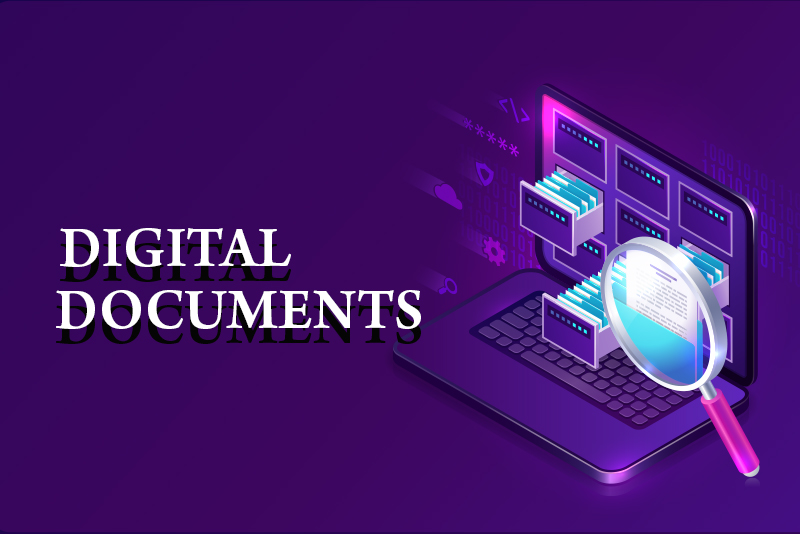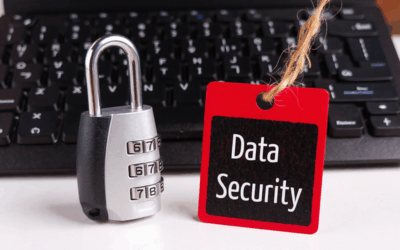Storing sensitive physical documents in an office requires additional space and high-level arrangements to ensure their security. From physical protections like secure warehouses, locking filing cabinets to safe shredding practices, safeguarding physical documents can be a headache. Document scanning and digitization provides a solution to these concerns and is the first step in the digital transformation journey. With the large volumes of documents most businesses have, many rely on document scanning service to convert analog information into an electronic format. Document security is an important aspect when converting physical documents into digital format.
Benefits of Scanned Documents
First, let’s look at the benefits of electronic documents over physical documents. Scanning important business documents comes with a number of advantages, including improved security:
- Saves physical storage space, time, and money
- Provides a higher level of data protection
- Allows documents to be stored securely with access rights for users
- Safeguards documents against theft or damage
- Can be backed up and restored at any time
- Easier to store, track, retrieve, and process
- Flexible access – can be easily shared with users in different locations
- Improves collaboration and speeds workflow
However, while electronic documents improve data protection and many other benefits, one question that often comes up is: how safe is document scanning? Copiers and document scanners pose security concerns. If you outsource the task, the document scanning service provider you choose matters. Companies need to handle document digitization in a way that sensitive documents and information stay protected.
Ensuring Secure Document Scanning Workflows
Taking the right precautions is crucial to prevent hacking and keep data safe from viruses and other internal network and online threats.
With the rising demand for document scanning services, scanning technology is constantly evolving and getting upgraded. Document scanners are available in various sizes and configurations, and can be assembled based on your requirements. Three common scanner types include feed-in or sheet-fed, flatbed, and handheld. There are devices that scan only black and white documents and those that can also scan color documents.
Nevertheless, despite their usefulness, modern copiers come some with security concerns.
For instance, scanners in many multi-function printers (MFPs) often retain scanned image data, which can introduce serious information security risk, says Kodak Alaris. The company offers scanners that do not store data. The data from scanned documents is transferred directly to a computer. However, it’s important to ensure that the computer connected to a scanner is secure.
A TechTarget article highlights another security concern in copiers — the scan-to-email feature which allows a scanned document to be converted to PDF and directly mailed from the device. As this feature has no encryption or password protection provision, it can compromise the safety of the email and attached document. Solutions recommended are:
- Using a mail server to allow gateway antivirus software and firewalls to scan the outbound email and its attachment. The server’s logging service will also create a trail of who the sender was, what was sent, and when it was sent.
- Choosing a copier (like Canon) which encrypts scanned documents and controls viewing, printing and editing privileges of the tool-generated PDF files.
- Investing in a product with the necessary security features and creating a data classification policy so that authorized users can identify sensitive documents and information when emailing them. This will also reduce risk of data breaches.
- Deleting successfully transmitted copies from the mail system after saving them.
- Signing a non-disclosure agreement to prevent divulging of information when copying to third parties.
Partnering with a reliable document scanning company is important if you are outsourcing the task. Competent companies have safe document scanning practices to protect client data, including using devices with high-end security features:
- Redaction: With redaction, operators can only see individual lines of data and not the entire scanned document. Redaction makes it impossible for unauthorized persons to access the information. The data can be deleted permanently once it reaches the destination.
- Secure conversion: Setting up encryption parameters as well as protocols to inform the machine about labeling and storing files will help protect information.
- Authentication: Scanning and emailing tasks are performed only by authorized personnel. Login accounts and pin numbers are assigned to create an audit trail.
- Encryption: Encryption through email and the authentication process through secure passwords limit access to scanned and stored data and prevent information from being compromised.
- Optical Character Recognition (OCR): OCR recognizes writing on a page and can prevent exposure of information to human eyes before it reaches the destination. This improves the safety of the scanning and indexing process.
Leading document scanning companies provide on-site as well as remote bulk document scanning solutions. In the remote workflow, scanned images are immediately transmitted to the server using encrypted virtual channels. They invest in high-end data security measures to protect the documents they are entrusted with. Partnering with a professional can ensure fast and reliable support and ease concerns about document scanning security.




